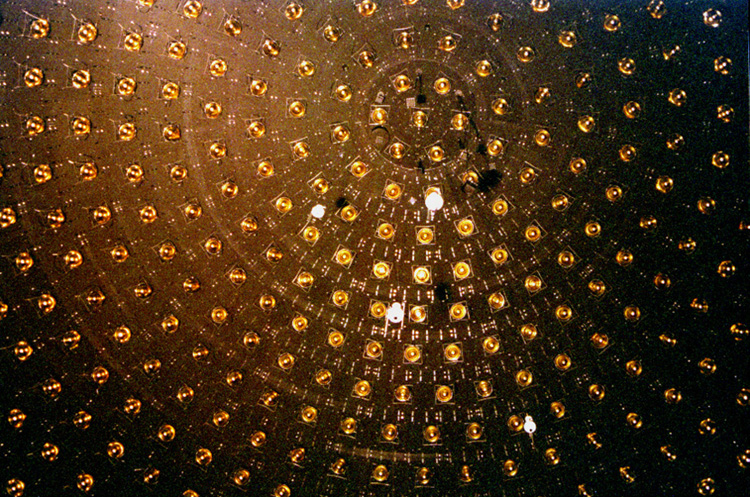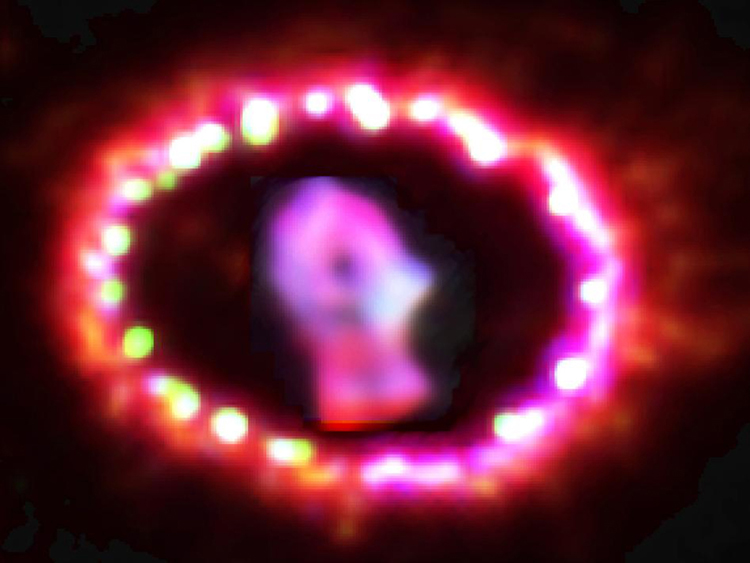| << Chapter < Page | Chapter >> Page > |
Theories of the proton-proton cycle (and other energy-producing cycles in stars) were pioneered by the German-born, American physicist Hans Bethe (1906–2005), starting in 1938. He was awarded the 1967 Nobel Prize in physics for this work, and he has made many other contributions to physics and society. Neutrinos produced in these cycles escape so readily that they provide us an excellent means to test these theories and study stellar interiors. Detectors have been constructed and operated for more than four decades now to measure solar neutrinos (see [link] ). Although solar neutrinos are detected and neutrinos were observed from Supernova 1987A ( [link] ), too few solar neutrinos were observed to be consistent with predictions of solar energy production. After many years, this solar neutrino problem was resolved with a blend of theory and experiment that showed that the neutrino does indeed have mass. It was also found that there are three types of neutrinos, each associated with a different type of nuclear decay.


The proton-proton cycle is not a practical source of energy on Earth, in spite of the great abundance of hydrogen ( ). The reaction has a very low probability of occurring. (This is why our Sun will last for about ten billion years.) However, a number of other fusion reactions are easier to induce. Among them are:
Deuterium ( ) is about 0.015% of natural hydrogen, so there is an immense amount of it in sea water alone. In addition to an abundance of deuterium fuel, these fusion reactions produce large energies per reaction (in parentheses), but they do not produce much radioactive waste. Tritium ( ) is radioactive, but it is consumed as a fuel (the reaction ), and the neutrons and s can be shielded. The neutrons produced can also be used to create more energy and fuel in reactions like
and
Note that these last two reactions, and , put most of their energy output into the ray, and such energy is difficult to utilize.

Notification Switch
Would you like to follow the 'Concepts of physics with linear momentum' conversation and receive update notifications?